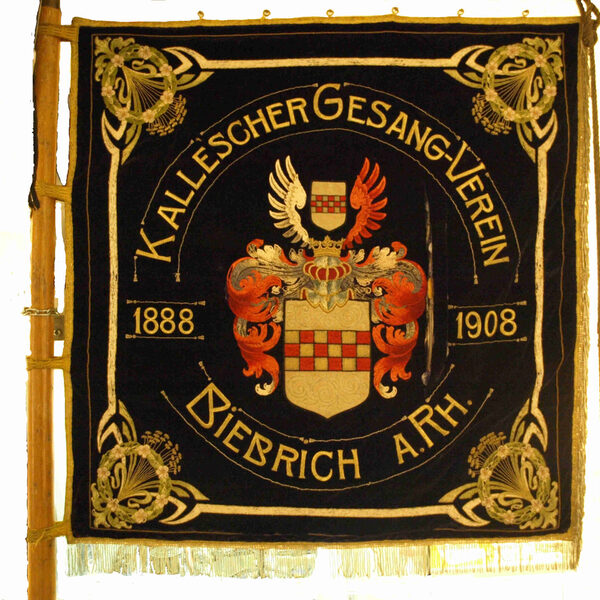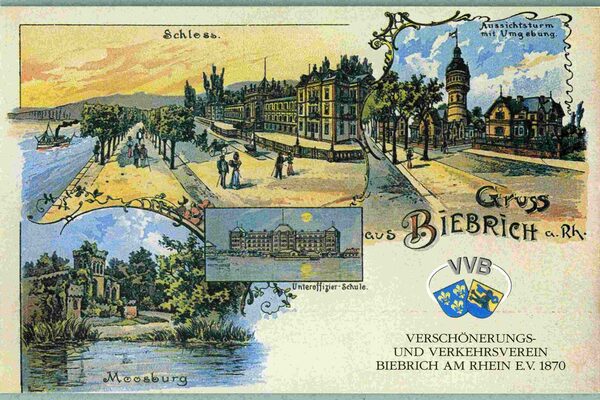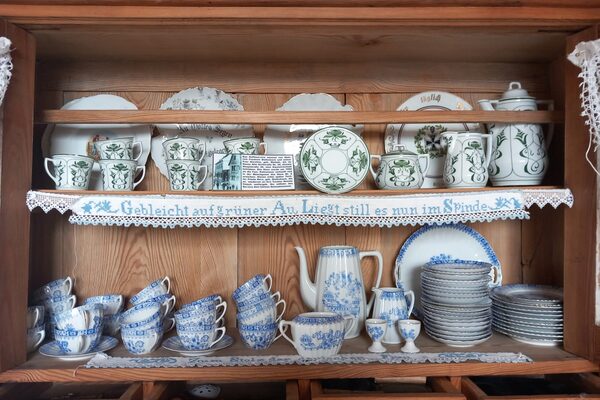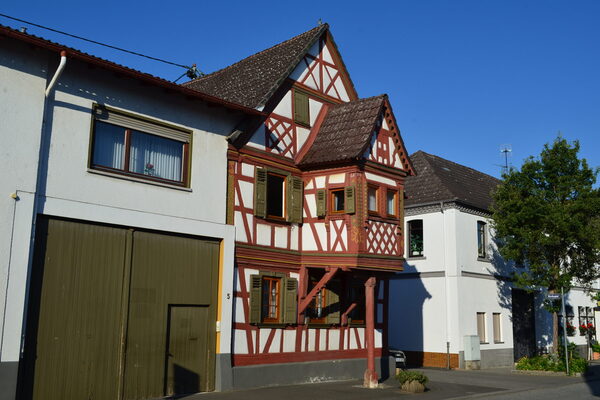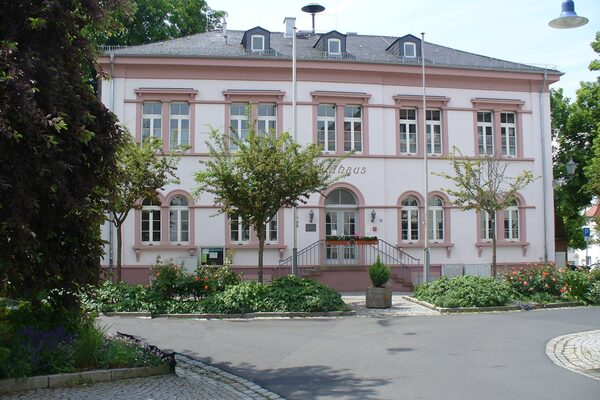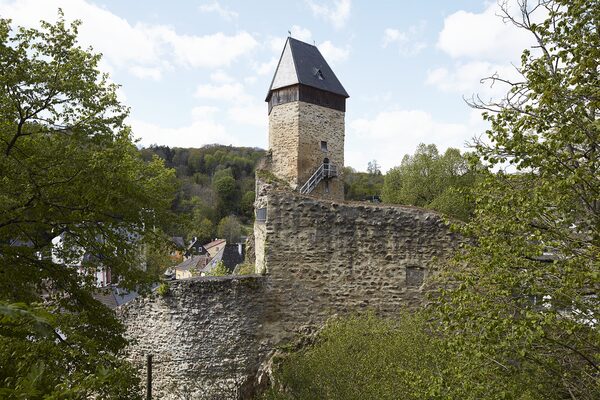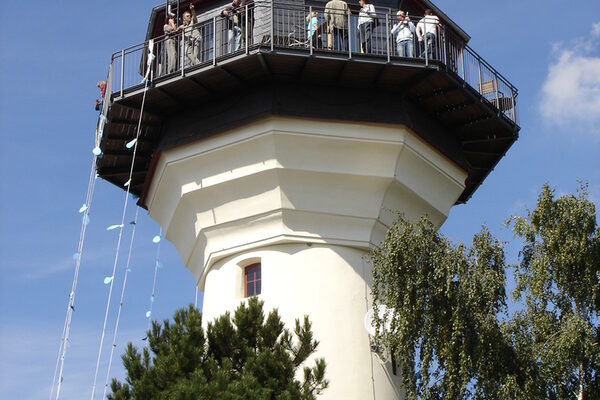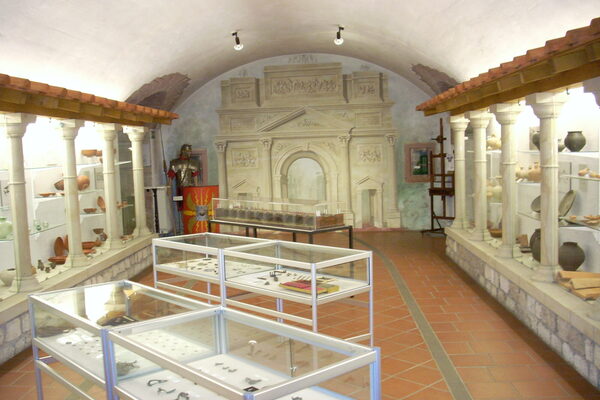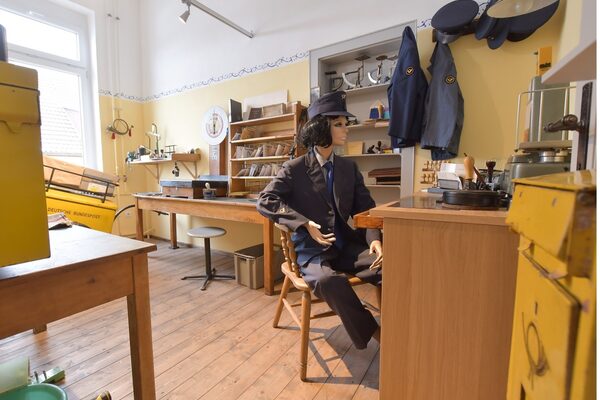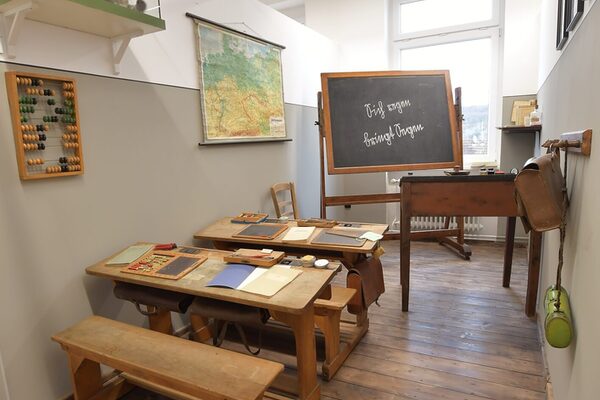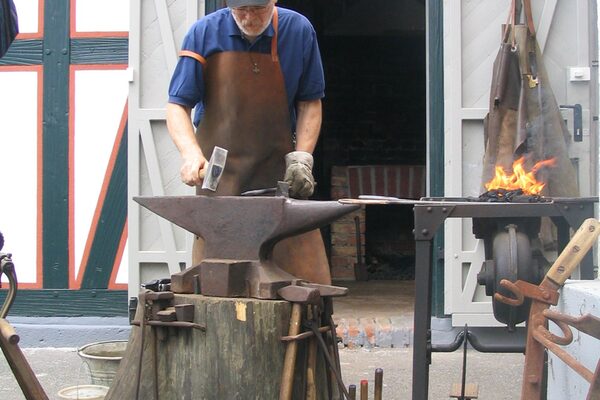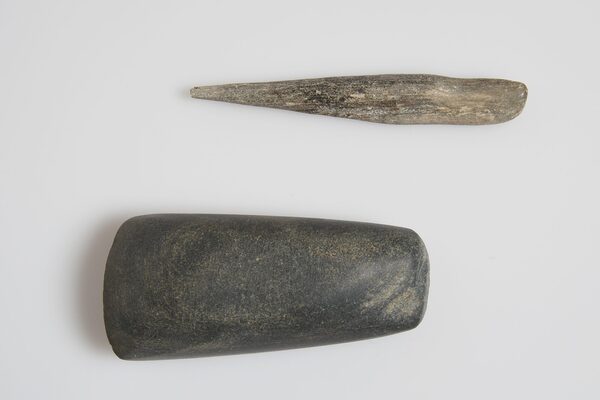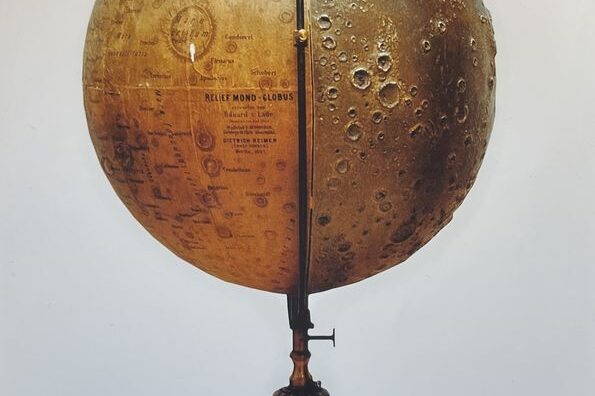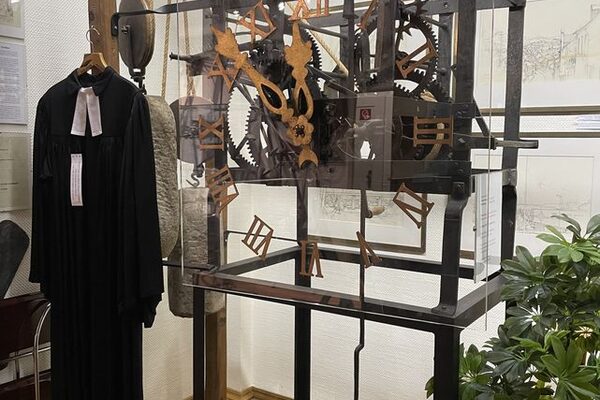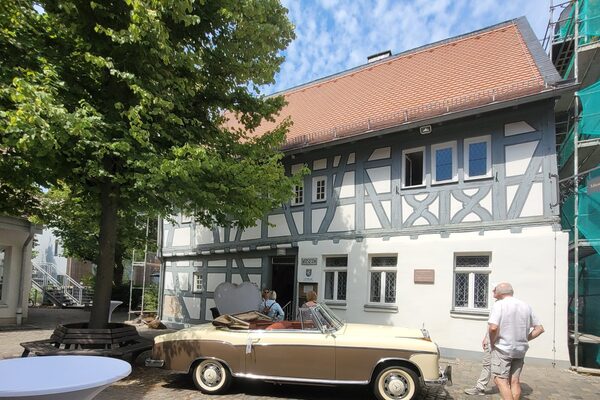District museums
There are local history museums in almost half of all Wiesbaden's districts, which offer the opportunity to take an in-depth look at the past and history of the respective location. The museums are mostly run by local history and heritage associations.
The range of archive material in pictures and words is rounded off in many cases by special exhibitions and lecture events. The Dotzheim local history museum is equipped with an audio guide.
There are a total of 16 district museums - these can be found in Biebrich, Bierstadt, Breckenheim, Delkenheim, Dotzheim, Erbenheim, Frauenstein, Igstadt, Kastel, Kloppenheim, Kostheim, Medenbach, Naurod, Nordenstadt, Schierstein and Sonnenberg.
Museum Biebrich for local and industrial history
In the "place of diversity" Biebrich, the museum presents an eventful history: for a hundred years, the former fishing and farming village was a residential town, after which it became an important industrial location. The main themes are correspondingly diverse: The noble Nassau dynasty, traditional trades and modern industrial companies. You can even find very early inhabitants of the Biebrich area here: a 20-million-year-old wadden snail, along with other fossils from the Mosbach sands.
The museum, originally founded in 1909, is now housed in the former municipal baths. In addition to the permanent collection, we also regularly show special exhibitions on 350 square meters. Guided tours of the park and castle are also offered.
Visitor information
Opening hours: Tuesdays 10 am to 12 noon, Wednesdays and Thursdays from 4 pm to 7 pm.
Admission is free.
Accessible by bus lines 4, 14 and 39 (bus stop Robert-Krekel-Anlage)
Rudolf-Dyckerhoff-Straße 4
65203 Wiesbaden
Further information
Verschönerungs- und Verkehrsverein Biebrich am Rhein e.V.
The VVB has been committed to the well-being of the citizens of Biebrich since 1870. As the sponsor of the Museum of Local and Industrial History, it makes it possible to explore the history of our district of Wiesbaden. To beautify Biebrich, the VVB has monuments erected and restored, including the fountain in the castle park and the Galatea fountain. But the present is also close to its heart: locals and tourists benefit from the redesign of the banks of the Rhine and cultural events such as concerts in the palace or lectures. Chronicles and the "Biebricher Geschichtsblätter" (Biebrich history sheets) present historical events and personalities that are memorable for Biebrich and Mosbach.
Contact us
Beautification and Tourist Association Biebrich am Rhein e.V. since 1870
Klaus E. Zengerle
Bernhard-May-Str. 41
65203 Wiesbaden
Telephone: 0611 603719
Further information
Breckenheim Historical Society
In 2012, the "Förderkreis Neuer Dorfplatz Breckenheim e.V." was renamed the "Förderkreis Historisches Breckenheim e.V.".
We have set ourselves the task of documenting the history of Breckenheim
Breckenheim's history, to bring it closer to the population in a lively form and to continue the local chronicle.
We do this through our website at www.historisches-breckenheim.de, through books and brochures such as "Wir nennen es Breckenheim" Volumes I and II, "Historischer Rundgang durch Breckenheim" and "Breckenheim von A-Z".
We also make Breckenheim's local history tangible through our local history museum with many exhibits and everyday objects from the old days. The museum has many photos, historical documents, old local magazines and photo albums that vividly document public life in Breckenheim.
Contact us
Friends of Historic Breckenheim e.V.
Old village street 47
65207 Wiesbaden
Telephone: 06122 15065
Further information
Bierstadt local history museum
In the various sections of the museum, the traditional trades of the region - linen weaving, pottery and agriculture - and their tools are presented. In addition, an old farmhouse parlor from 1850, a kitchen from around the same year and a teacher's room show what living conditions were like back then. The doors of the Bierstadt local history museum are also regularly opened for special exhibitions.
Visitor information
Opening hours: Twice a month, every second and fourth Sunday of the month 3 to 5 pm, closed in July and August.
Guided tours: There are no regular guided tours, but guided tours are also possible outside opening hours by appointment. Admission is free of charge.
Parking: Parking spaces in neighboring streets, no own parking spaces.
Public transport: Bus routes 23, 24, 37 and N11, bus stop "Venatorstraße".
Further information
Delkenheim local history museum
On December 1, 1984, a small, illustrative museum of local history was opened in the former meeting room of the Delkenheim local administration.
was opened, laying the foundation for the establishment of the Delkenheim Local History Association on December 8, 1988. In December 1996, a large part of the inventory, which had continued to grow, was moved to the town hall annexe. From then on, the local history museum had a permanent home for its numerous collections and historical furniture.
Since 1985, the meeting room of the local administration has also been used twice a year for a wide variety of special exhibitions. The changing exhibitions are very popular and are well received, not only by the people of Delkenheim.
Maintaining traditions is not just about the local history museum, but also about participating in the Delkenheim Kerbe parade, the summer festival and the town hall square festival. The board is very aware of the importance and promotion of maintaining this tradition in the Delkenheim local history association.
Visitor information
Opening hours: Every first Sunday of the month and on request
Contact us
Delkenheim local history association
Wolfgang Jirsch
Taunusring 4
65205 Wiesbaden
Phone: 06122 5879995
Further information
Dotzheim Museum
Since 1985, the Dotzheim Museum has been open to all interested parties as a museum of local history.
the opportunity to see some of the things that have fallen victim to our fast-moving times in many places. The museum sees itself as a place of remembrance that preserves the past. Particularly worth seeing are the bourgeois farmhouse kitchen
from the 19th century, a complete cobbler's workshop, the presentation of local viticulture, the comprehensive presentation of the history of the "Langenschwalbacher Bahn" and the restaurant "Zur Stadt Hanau".
The permanent exhibition of the Dotzheim Museum focuses on the development of Dotzheim from the end of the 19th century to its incorporation in 1928. The museum presents two special exhibitions every year.
Audio guide
The Heimat- und Verschönerungsverein Dotzheim has equipped the Heimatmuseum Dotzheim with a state-of-the-art audio guide that creates a completely new museum experience. The audio guide is also available in English.
It is advisable to bring headphones when visiting the museum. You can also get a first impression from home.
Visitor information
Opening hours: Sundays from 10 am to 12 noon and every first Wednesday of the month from 5 pm to 7 pm, the Museum Dotzheim is closed during school vacations.
Public transportation: Bus lines 45 and 47, bus stop "Dotzheim Mitte / Ludwig-Erhard-Straße".
Further information
Erbenheim Local History Museum e.V.
The Heimatmuseum Erbenheim e.V. was founded in 1983 as a non-profit association with the aim of setting up and maintaining a museum of local history and collecting and exhibiting traditional items relating to the local area, as well as publications on local and family history. The association currently has around 100 members. Our permanent exhibition covers the following topics:
- Finds from the Roman and Franconian periods
- Bourgeois life at the turn of the century (1900)
- Milk supply - from the cow to the dairy to the consumer
- From the horse racecourse to the airfield
- The former Erbenheim railroad station and the Ländchesbahn
- Historic cobbler's workshop
- The Erbenheim schools
- Historical maps from Erbenheim to Nassau
- Historical photographs
We also present temporary special exhibitions.
An extensive library on local history topics and the archive of the "Erbenheimer Anzeiger" complete the offer.
Visitor information
Opening hours: Every last Sunday of the month from 2 to 5 pm
Contact us
Erbenheim Local History Museum
Former Erbenheim town hall
Wandersmannstraße 25
65205 Wiesbaden
c/o Gerhard Beil (1st Chairman)
Emil-Krag-Straße 2
65205 Wiesbaden
Phone: 0175-96 54 326
vorsitzenderheimatmuseum-erbenheimde
Further information
Frauenstein Castle Association
Frauenstein Castle - the oldest castle in Wiesbaden
In 1996, the newly founded Burgverein bought the ruins of Frauenstein Castle. Since then, the association has made it its mission to preserve the monument, which was built at the end of the 12th century, for the general public. Extensive restoration
and reconstruction measures between 2000 and 2002 turned the ruins into a real gem that attracts young and old alike, and not just at the annual castle festival.
The castle association offers regular guided tours of the residential tower, bringing visitors a little closer to the Middle Ages and the history of Frauenstein. It endeavors to preserve the complex and make the castle a "hands-on monument".
a "hands-on monument". This is experienced by school classes who visit the castle as part of their history lessons, as well as hikers, day trippers and wine lovers who visit the idyllically situated Frauenstein and its castle.
Visitor information
Opening hours: For current opening hours, please refer to the homepage of the Frauenstein Castle Association.
Contact us
Frauenstein Castle Association
Adolf-Lupp-Platz 1
65201 Wiesbaden
Dr. Hermann Hülsing (1st Chairman)
Cherry Blossom Street 54
65201 Wiesbaden
Telephone: 0611 421875
vorstandburgverein-frauensteinde
Local history and heritage association Igstadt e.V.
"Researching the past - shaping the present - experiencing the future"
The Heimat- und Geschichtsverein Igstadt e.V. was founded in 1992 and currently has 183 members. The aim of the association is to research and publish local and family history and to collect and preserve documents and objects. The association maintains an extensive archive with the aim of establishing a museum of local history.The local history is documented in several volumes of chronicles. In particular, the local history and history association has intensively researched and published the fate of the Jewish families in Igstadt and the post-war period. However, a look into the past in no way obscures the focus on the present, the changes to the cultural landscape in the "Ländchen" and the development of the village.
The excursions and walks offered by the association always offer something special, be it guided tours of the town with a historical focus or excursions into the history of the earth. The geological adventure hikes for children and young people through the Igstadt district are particularly popular.
Contact us
Local history and heritage association Igstadt e.V.
Dr. Michael Weidenfeller
Glöcknerstrasse 9
65207 Wiesbaden
Phone: 0171 2600571
vorstandigstadt-hgvde
Museum Castellum Kastel
Founded on September 26, 1980, the Gesellschaft für Heimatgeschichte Kastel e. V. (GHK) is committed to researching Kastel's 2000-year history and promoting the idea of local history. It is committed to the preservation of valuable historical and natural monuments in the municipality and also collects and maintains cultural and local historical materials and objects from Kastel in order to present them to the general public.
On July 7, 1984, the "Historical Kastel Room" was inaugurated in the Reduit. Soon the single room was no longer sufficient - the Museum Castellum was created! In the old walls of the Reduit dating from 1834, the museum opened on May 19
1990, just in time for the 2000th anniversary of Kastel, the museum opened its doors.
The permanent exhibition presents the history of Kastel. There are also changing special exhibitions, author readings, lectures and concerts.
The Museum Castellum presents the history of Kastel from Roman times to modern times - with many original exhibits, some of which are on loan from the Nassau Antiquities Collection of the town museum (uniforms, replicas in the form of models and historical objects such as militaria).
In September 1986, huge stone blocks emerged during construction work - one of the most important discoveries in the field of Roman archaeology: the Germanicus Arch, also known as the "Roman Arch of Honor".
Rafting had a centuries-long tradition at the confluence of the Main and Rhine rivers. Many pictures of this traditional profession can be seen in the raftsmen's room in the "Schönborn Bastion".
Roman Arch of Honor
The "Roman Arch of Honor" museum, Große Kirchenstraße 5-13, provides information about one of the most important discoveries in the field of Roman archaeology, the Arch of Germanicus. It is open from April to October on Sundays from 10.30 am to 12.30 pm.
Raft room
The "Flößerzimmer" museum is housed in the Schönborn bastion at Rheinufer 12. Here you can see many exhibits, such as tools and pictures of the traditional profession of the raftsman, which are explained in detail. The museum is open daily during restaurant opening hours.
Erbenheimer Warte
The "Erbenheimer Warte", a round tower with a pointed stone roof and pitched noses in the area of today's Kastel settlement "Fort Biehler", served as a timely warning against hordes of robbers in the 15th century. The watchtower can be visited by prior arrangement.
Contact us
Society for Local History Kastel e.V.
P.O. Box 24
55247 Mainz-Kastel
Telephone: 06134 3763
Further information
Kloppenheim Local History Museum
The Kloppenheim local history museum is located in a former barn, the "Heimatscheune". Pictures and objects from the past are documented and exhibited in the building, which has been restored by the Kloppenheim local history association. The "Heimatscheune" also hosts wedding ceremonies in a historical setting.
Visitor information
Opening hours: Second Sunday of the month from 2 to 5 pm. Closed in July, August and September.
Guided tours: There are no regular guided tours, but guided tours are also possible outside opening hours by appointment.
Parking: Parking is available around the museum and in the side streets.
Public transportation: Bus lines 24 and N11, bus stop "Stiegelstraße".
Contact us
Local History Museum Kloppenheim
Oberstraße 11
65207 Wiesbaden-Kloppenheim
Contact: Erhard Stein
Stiegelstraße 9
Phone: 0611 507117
Kostheim Local History Museum
The museum near the banks of the River Main provides an overview of the history of the town from Roman times to the present day. It exclusively displays exhibits from the Kostheim district. The museum's focal points include
Finds from Celtic and Roman times. The long-established associations of the village are presented in the flag room. In addition, the past traces of the raftsmen and historical personalities / artists of Kostheim can be admired. Attached is a sculpture room with a permanent exhibition of the works of the blind sculptor Schmitt and Father Ludwig.
"Identification with the homeland"
The non-profit Heimatverein Kostheim e.V. has been active since 1974. Its aims are to preserve and research the history, customs and culture of the village at the mouth of the River Main. From the very beginning, the association intended to present Kostheim's history in a museum. The founders of the association saw Kostheim as a place of residence and home to all people who wanted to feel at home, regardless of
whether they were born here or not.
The aim of the association is to offer active assistance in identifying with Kostheim - its past, present and possible future. There is a whole range of tools for this: The museum, a wide range of brochures, the
preservation of cultural monuments in the district, popular day and multi-day trips and various events initiated by the local history association.
Visitor information
Opening hours: Every first and third Sunday of the month from 10am to 12pm and from 3pm to 5pm.
Guided tours: There are no regular guided tours; guided tours are also possible outside opening hours by appointment.
Parking: Parking is available on the banks of the Main.
Public transport: Lines 33 and N7, stop "Winterstraße".
Contact us
Museum of local history
Main street 137
55246 Mainz-Kostheim
Kostheim local history association
Michael Auth
Rüsselsheimer Street 21
55246 Mainz-Kostheim
michael.authgmxde
Medenbach local history museum
The Medenbach local history museum is located on the upper floor and attic of the former elementary school building at Neufeldstraße 9.
On the way to the top floor, the old church clock from 1932 and large-format photos from times gone by are impressive.
An old shoemaker's workshop with all its components in their original state has been preserved as the village shoemaker worked in the middle of the last century and in the following decades.
In addition to special exhibitions that change every six months, visitors will find an extensive collection of pictures from Medenbach's history with many black and white photos of buildings and streets, of people at work and celebrating, of the school, the church, of young and old.
Insights into village life at the beginning and in the middle of the last century are provided by a variety of objects arranged thematically: Dairy farming, home slaughtering, washing, storage and cider. A cupboard with well-kept laundry and another with preserved provisions round off the themes.
After the former school hall on the first floor was taken over by the museum a few years ago, the exhibition possibilities have been greatly expanded:
The post office displays an old post office with parcel scales, sorting locker, various postal uniforms and more.
The village school gives an impression of what it used to look like in the one-class school with teacher's desk, pupils' benches, blackboard, etc.
The kitchen with stove, sandstone sink, cupboard, table and appliances is a kitchen from around 1930.
The children's room with crib, rocking horse and doll's pram was not so well equipped in many families at that time.
Important archaeological finds from the Stone Age and Roman times are on display.
And the historic restaurant (dating from around 1920) is a particular highlight. From time to time, a morning pint is held here from 11.00 am to 1.00 pm on Sundays when the museum is open.
In the shed on the former schoolyard you can marvel at an old smithy and a wainwright's workshop.
Visitor information
Opening hours: Every first Sunday of the month from 3 to 5 pm. Summer break. After special announcement also morning pint at 11 am.
Guided tours: Guided tours are possible by appointment.
Public transportation: Bus lines 21 and 26, bus stop "Neufeldstraße".
Contact us
Medenbach Local History Museum
Neufeldstrasse 9
65207 Wiesbaden-Medenbach
Chairman: Dieter Engel
In der Hofreite 21a
65207 Wiesbaden
Phone: 06122 / 12427
Further information
Naurod Local History Museum
For 40 years, the purpose of the Naurod History and Local History Society has been to preserve "rural life" for posterity through various exhibits.
for posterity. These serve to make Naurod's local history and heritage visible and to document and research Naurod's history. We attach particular importance to getting young people interested in Naurode's history.
history.
The association also organizes historical lectures, guided tours for school classes and hikes around Naurod, e.g. to the old waterworks, the Kellerskopf or the old Steinkaut - a volcanic shaft that was later used as a quarry.
Excursions to historical sites are also organized regularly.
Our local history museum has a permanent exhibition of handicraft and farming exhibits as well as household items from past centuries, e.g. an old church clock and other valuable ecclesiastical exhibits. The permanent exhibition is changed annually. The showpiece is the unique moon globe, which was made by Rudolf Dietz and only exists twice in the world: One in the Nauroder Heimatmuseum and a copy in the Deutsches Museum in Munich. Probably the oldest exhibits are the several thousand year old Celtic burial mounds that existed around Naurod.
Outside of opening hours, we offer guided tours
in our museum of local history.
Visitor information
Opening hours (from September to May): 1st Sunday of the month 3-5 pm and by appointment
Guided tours: The museum is available for special guided tours by telephone arrangement with the 1st chairman Daniel Schütte and is also suitable for visits by school classes.
Parking: Parking is available opposite the museum.
Public transport: Bus routes 20, 21, 22 and N10, bus stop "Fondetter Straße".
Contact us
Naurod Local History Museum
Obergasse 11
65207 Wiesbaden
History and
local history society Naurod e.V.
Daniel Schütte (1st chairman)
Fondetter Street 27 b
65207 Wiesbaden
Telephone: 06127 62469
daniel_schuettewebde
Further information
Nordenstadt Local History Museum
Nordenstadt local history museum - a town center with flair
The Historische Werkstatt Nordenstadt e.V., which runs the museum, opens its doors to visitors every 1st and 3rd Sunday of the month for events and individual guided tours. You can marvel at a Tante-
Emma store from 1910, a hairdressing salon with original equipment from the 1930s, a cobbler's workshop and a "Gud Stubb", which, like the museum tavern, is used as a wedding room. In the neighboring "old fire engine house"
agricultural equipment, fire department paraphernalia and much more. Events organized by the historical workshop and other associations take place regularly in the museum courtyard.
Visitor information
Opening hours: Every first and third Sunday of the month from 3 to 5 pm and during events.
Guided tours: There are no regular guided tours; guided tours are also possible outside opening hours by appointment.
Parking: Parking is available in the adjacent streets.
Public transport: Bus route 15, bus stop "Horchheimer Straße" and bus route 262, bus stop "Wallauer Weg" or "Stolberger Straße".
Further information
Schierstein Local History Museum
In the permanent exhibition, the museum displays exhibits on the history of Schierstein as well as pictures of the old town center and photographs of the "old" trades of fishermen, raftsmen, boatmen and winegrowers. The museum also offers special exhibitions on a wide range of topics.
Visitor information
Opening hours: Sundays from 10.30 am to 12.30 pm.
Guided tours: There are no regular guided tours, but guided tours are also possible outside opening hours by appointment.
Parking: Parking is available in the courtyard of the harbor school.
Public transportation: Stops Rathaus Schierstein and Reichsapfelstraße; bus lines 5, 9 and ORN 171
Contact us
Schierstein Local History Museum
Old harbor school
Zehntenhofstrasse 6
65201 Wiesbaden
Contact: Dieter Thrun
Heinrich-Heine-Strasse 38
65201 Wiesbaden
Phone: 0611 21711
Sonnenberg Castle Museum
Built in the early 13th century, the castle has a long and eventful history, which is presented in texts and objects on three levels of the tower.
